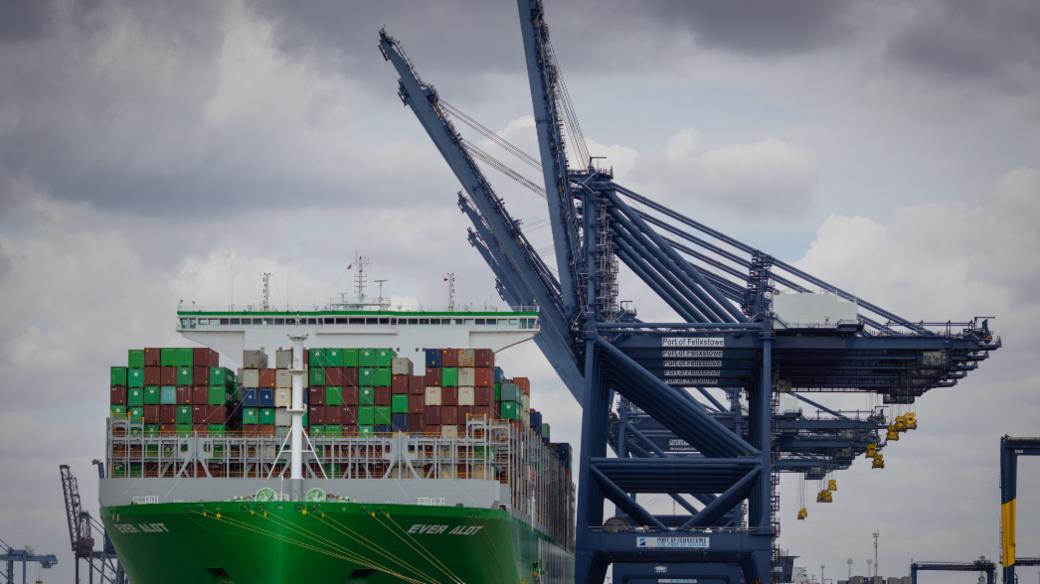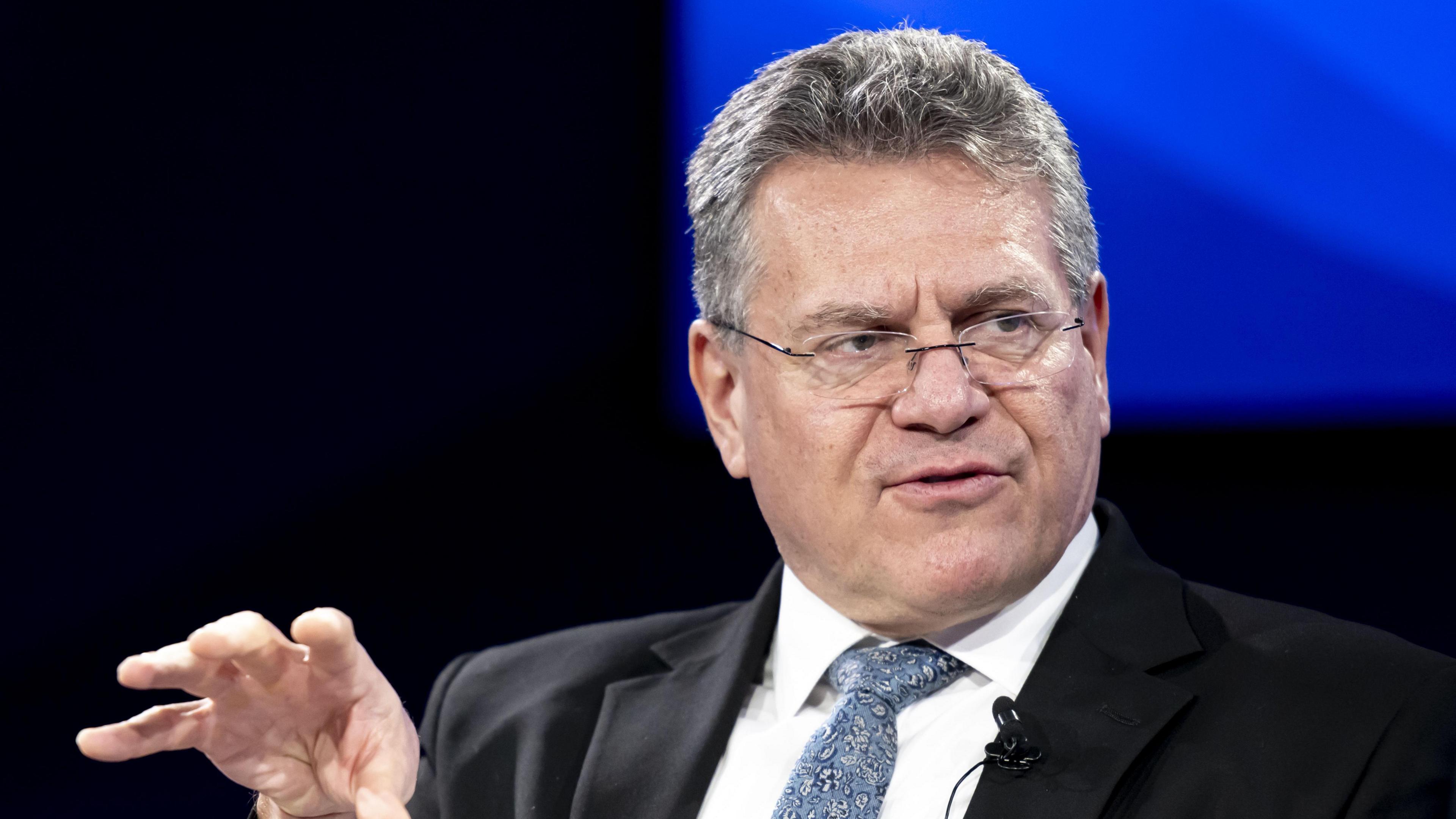UK leaves door open to joining EU trading scheme

- Published
Downing Street has not ruled out the possibility of the UK joining an arrangement between the EU and neighbouring countries that is designed to facilitate tariff-free trading.
On Wednesday, the EU's new trade chief Maros Sefcovic told the BBC he was open to Britain joining the Pan-Euro-Mediterranean Convention (PEM) as part of a post-Brexit "reset".
The arrangement allows for tariff-free trade of some goods from across dozens of countries in Europe, North Africa and the Middle East.
Earlier, the EU relations minister Nick Thomas-Symonds said: "We don't currently have any plans to join PEM."
But asked about the possibility of the UK joining arrangement, the prime minister's official spokesman told reporters: "We've always said that we want to look at ways to reduce barriers to trade whilst remaining within our clear red lines.
"The arrangement that's being discussed is not a customs union.
"Our red line has always been that we will never join our customs union, never re-join the single market, no freedom of movement, but we're just not going to get ahead of those discussions."
However, the spokesman said "as we've always been clear, we think that there's room to improve on the trading relationship with the EU, and we'll be having those discussions.
"Our focus is on rebuilding our ties with Europe, working with them on a wide range of issues, from trade and investment to security and defence."
EU 'could consider' UK joining pan-Europe customs scheme
- Published23 January
Brexit fishing row heads for trade court showdown
- Published20 January
Rachel Reeves signals wider reset of EU relations
- Published9 December 2024
At the World Economic Forum in Davos, Mr Sefcovic told the BBC the idea had not been "precisely formulated" by London and the "ball is in the UK's court".
Business Secretary Jonathan Reynolds, who is also in Davos, told the BBC the UK had not proposed joining the scheme, but added: "We talked to business a lot about it... some sectors would benefit, some wouldn't."
Asked about PEM in the House of Commons, Thomas-Symonds said he welcomed the "positive, constructive tone" from the EU trade commissioner.
"We don't currently have any plans to join PEM, and we are not going to provide a running commentary on every comment that's made."

Maros Sefcovic speaking at the World Economic Forum in Davos, Switzerland
The minister's comment prompted anger from the Liberal Democrat leader Sir Ed Davey, who recently called for the UK to join a new customs deal with the EU, allowing tariff- free trade between the two blocs.
It would also restrict the UK's ability to strike trade deals with other countries.
Sir Ed accused the government of an "act of economic negligence," adding: "It is alarming that the government is happy to negotiate with China but won't even look at a better trading arrangement with our closest neighbours in Europe.
"It is time for a proper UK-EU customs arrangement so we can strengthen our negotiations with Donald Trump, cut the red tape on our businesses and grow the economy."
Conservative shadow foreign secretary Dame Priti Patel accused Labour of "bending the knee to the EU".
"These latest reports that the government might shackle us to the European Union are deeply concerning, and once again make clear that Keir Starmer and his chums are all too happy to put their ideology ahead of our national interest, no matter the cost."
Raising the subject in the House of Commons, Conservative MP, John Cooper, said joining the Pan-Euro-Mediterranean Convention would turn the UK "once again into rule-takers and not rule-makers".
He asked Thomas-Symonds to rule out signing up to an agreement that could see the UK "taking EU rules" and instead "strike out in the world and do new deals with America and around the Pacific-Rim".
The minister replied that it was not a "binary choice" and the government would not "choose between allies. We look to deepen all our relationships."